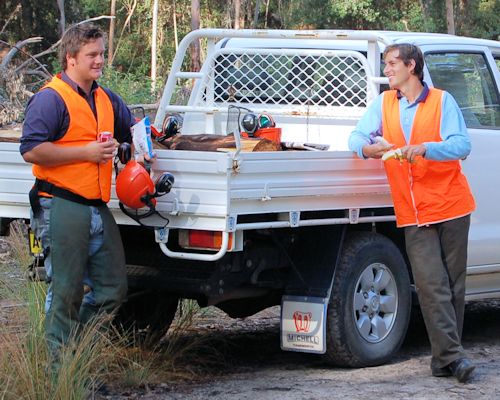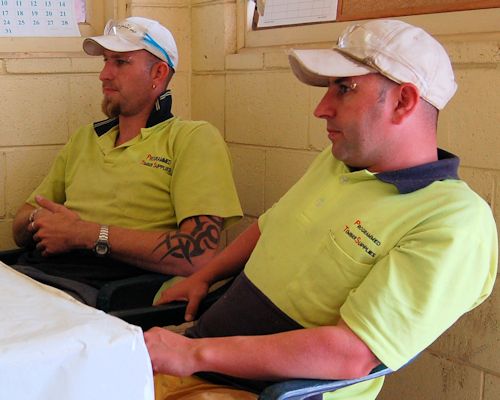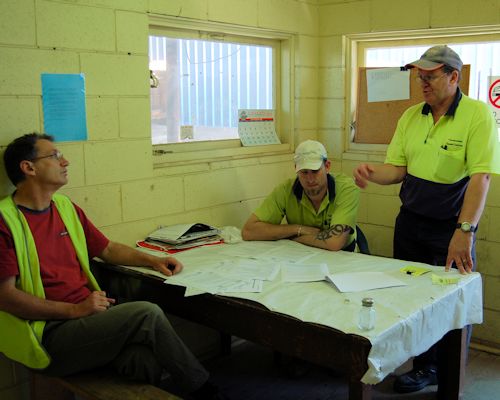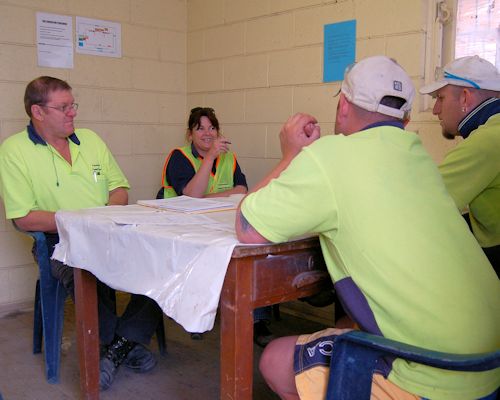Giving and receiving feedback
 Audio for slide 1 (mp3 |6|KB)
Audio for slide 1 (mp3 |6|KB)
How do you know when you're doing a good job? How do other people know that you've understood them correctly?
As we discussed in Section 1, the answer is - through feedback.
Giving and receiving feedback is an important part of working with others in a team.
It keeps communication channels open so that everyone understands how they are performing and whether any problems need to be addressed.

As we discussed in Section 1, the answer is - through feedback.
Giving and receiving feedback is an important part of working with others in a team.
It keeps communication channels open so that everyone understands how they are performing and whether any problems need to be addressed.

 Audio for slide 3 (mp3 |6|KB)
Audio for slide 3 (mp3 |6|KB)
On the other side of the coin, getting negative feedback can be a quite a blow to your self-esteem.
But if you handle it properly it can help you learn and improve your performance.
By turning critical comments into constructive advice, you will make the most of what you're being told and grow from the experience.
Click on the link below to see some suggestions on how to do this.

But if you handle it properly it can help you learn and improve your performance.
By turning critical comments into constructive advice, you will make the most of what you're being told and grow from the experience.
Click on the link below to see some suggestions on how to do this.

 Audio for slide 5 (mp3 |6|KB)
Audio for slide 5 (mp3 |6|KB)
In any busy team, people can get touchy when things aren't going the way they should, or if they're feeling under pressure to get a job finished on time.
So it's normal to have a bit of stress or the odd harsh word from time to time.
But if the negative emotions develop into an on-going state of conflict, it can become very unpleasant for the people involved and quite counterproductive for the whole team.

So it's normal to have a bit of stress or the odd harsh word from time to time.
But if the negative emotions develop into an on-going state of conflict, it can become very unpleasant for the people involved and quite counterproductive for the whole team.

 Audio for slide 6 (mp3 |6|KB)
Audio for slide 6 (mp3 |6|KB)
If you do find yourself in conflict with another team member, it's important to sort out your differences as quickly as possible.
Your first response should be to approach them directly and try to resolve it together.
If that fails, you should take the matter to your boss or supervisor.
If your boss or supervisor is actually part of the problem, you may need to find another person who can act as a 'mediator' for you and discuss the issues on your behalf.
Click on the link below to see some guidelines on how to handle a conflict situation with another team member.

Your first response should be to approach them directly and try to resolve it together.
If that fails, you should take the matter to your boss or supervisor.
If your boss or supervisor is actually part of the problem, you may need to find another person who can act as a 'mediator' for you and discuss the issues on your behalf.
Click on the link below to see some guidelines on how to handle a conflict situation with another team member.


Learning activity
Audio 7 (mp3 |6|KB)The more receptive you are to feedback, the more inclined people will be to help you with advice and little hints along the way.
Below are a range of responses you could give to the feedback that you're being offered. Some of these responses are likely to encourage people to continue offering constructive comments in the future. The other responses are more likely to turn them off from wanting to help with further advice.
Rate these responses as 'good' or 'bad', depending on the message they're likely to give the person providing the feedback. If you're studying this unit with another learner, discuss the effect these responses would have.
- Maintaining a lot of eye contact and nodding.
- Looking at your watch and fidgeting.
- Waiting for the other person to finish making their point, even if you want to butt in and disagree.
- Folding your arms and looking into the distance.

Go to Assignment
Industry Network Training and Assessment Resourses
© 2016 Workspace Training



